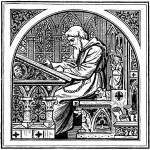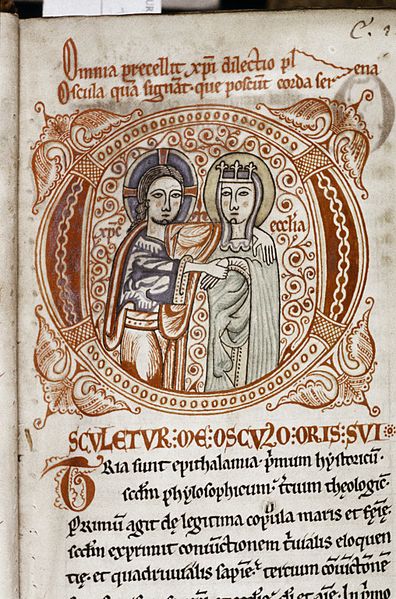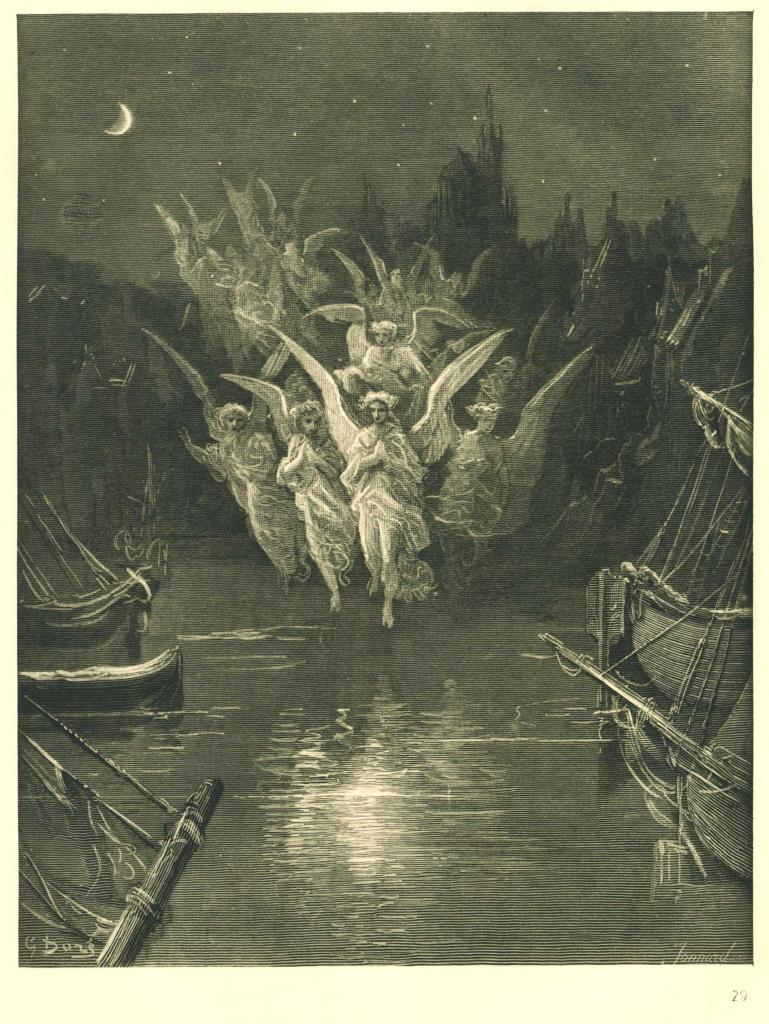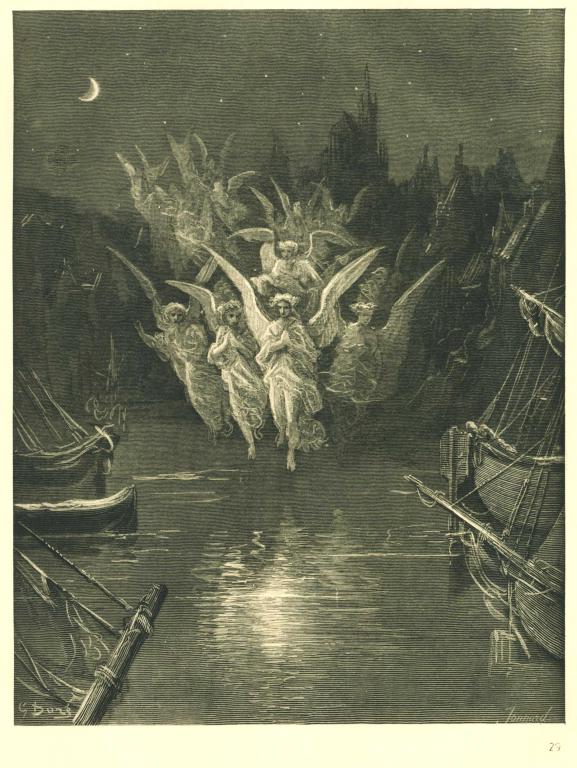David Russell Mosley
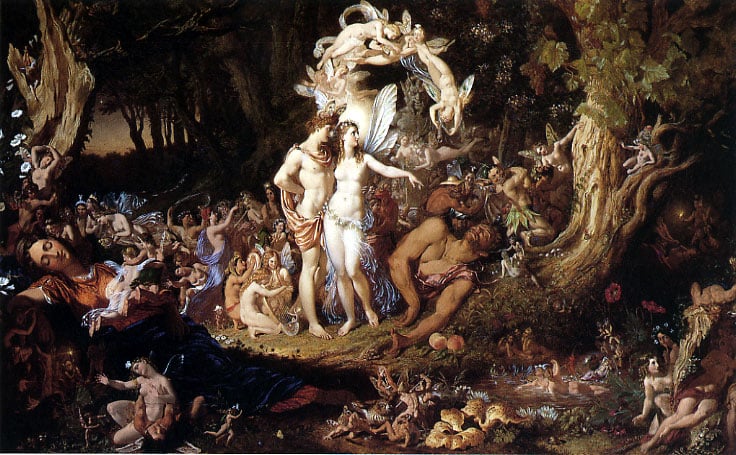
Author
Joseph Noel Paton (1821–1901)
Description
English: The Reconciliation of Titania and Oberon
Date 1847
According to the book, Titania and Oberon are the functional, human names, for the overqueen and king of Faërie.
(Public Domain)
Ordinary Time
4 November 2016
The Edge of Elfland
Hudson, New Hampshire
Dear Readers,
 Last night, I finally finished, for the second time, Susanna Clarke’s excellent Jonathan Strange and Mr Norrell. This book is part historical fiction and part fantasy. The book takes place in the time surrounding the Napoleonic wars, and is primarily set in England. While much is similar between Clarke’s 19th century world and the 19th century world we know from history, there are startling differences. Most notable of them all is the existence of magic, and not just any magic, but English magic and fairy magic. Second most notable (actually, these cannot be properly separated) is the fact that Clarke’s England was actually divided in half during the Middle Ages. The Northern half, everything from Nottinghamshire to Northumbria, was under the role of a man known as John Uskgass or the Raven King, while the Southern half was rule by the kings and queens of England with which we are familiar. The book centers primarily on the titular characters, men who either are at the start of the book (Norrell) or become throughout it (Strange) two of the greatest English magicians in over 300 years. There are other intrguing and important characters such as Stephen Black (a black servant), Lady Pole, Arabella Strange, and the fairy only ever known as the gentleman with the thistle-down hair.
Last night, I finally finished, for the second time, Susanna Clarke’s excellent Jonathan Strange and Mr Norrell. This book is part historical fiction and part fantasy. The book takes place in the time surrounding the Napoleonic wars, and is primarily set in England. While much is similar between Clarke’s 19th century world and the 19th century world we know from history, there are startling differences. Most notable of them all is the existence of magic, and not just any magic, but English magic and fairy magic. Second most notable (actually, these cannot be properly separated) is the fact that Clarke’s England was actually divided in half during the Middle Ages. The Northern half, everything from Nottinghamshire to Northumbria, was under the role of a man known as John Uskgass or the Raven King, while the Southern half was rule by the kings and queens of England with which we are familiar. The book centers primarily on the titular characters, men who either are at the start of the book (Norrell) or become throughout it (Strange) two of the greatest English magicians in over 300 years. There are other intrguing and important characters such as Stephen Black (a black servant), Lady Pole, Arabella Strange, and the fairy only ever known as the gentleman with the thistle-down hair.
It is tempting to simply give you an overview of this book. It could certainly do with one, since editions range from just under 800 to just over 1000 pages. Suffice it to say that most of the books plot turns on how one understand’s English magic. Is it something purely and simply respectable or is it something wild, fairy-like, or simply fairean? We never receive a complete answer to this question. At best we might say it is somewhere in between, or that it is one thing for men like Strange and Norrell, another for fairies, and yet another for the Raven King.
If you haven’t read this book, then I highly recommend it. It reads like a nineteenth century novel. In fact, when I finished it last night and found I could not go to sleep, turning to the works of Jane Austen seemed the most natural thing in the world. Not because Clarke’s book focuses on romantic relationships between often rich (or once rich) men and usually (though not always) less rich women, but because they inhabit the same world (the above exceptions notwithstanding). Rather than give a proper review of this book, or even simply an overview, I want to discuss at least three aspects of the story, in at least three separate letters, I find interesting. Be warned, however, there be “spoilers” ahead.
THE WICKEDNESS OF FAIRIES
Clarke’s fairies are a fascinating bunch. Given that when Strange and Norrell discuss what is said about them in books of and about magic (that fact that their language is called sidhe) give us something of a Celtic depiction of fairies. Actually, that’s not quite true. We only meet fairies in one of two ways, either through description in books or in the presence of the gentleman with the thistle-down hair. When we meet fairies in books, we are to a large extent warned not to take too seriously their descriptions. It seems fairies and humans often have trouble relating to one another or communicating with one another, which makes any human descriptions of them suspect. And yet, we are given the indication that the gentleman with the thistle-down hair is any better a representative. Let me try to explain what I mean.
At the end of the book, we find that the Raven King (who had three kingdoms: one in England, one in Faërie, and one in or on the other side of Hell), is casting his own spell (it would seem in part to help return true English magic to England) by means of Strange and Norrell. This grand spell includes the magicians mistakenly having all of England bow before Stephen Black, who uses his newfound, but short-lived, subjects to help him kill the gentleman with thistle-down hair who had enchanted Black and two other ladies during the course of this story and thus free one of the ladies (the other had been freed in part by Strange as well as Childermass and John Segundus). While the Raven King, who has been absent from his English kingdom for roughly 300 years, is also a king in Faërie and has fairy subjects, here he is clearly conspiring to kill this particular fairy. We are given the indication that fairies are inherently wicked and the gentleman with the thistle-down hair seems to confirm this. Yet, when Stephen Black leaves England, after having killed his enchanter, he discovers that he has become king of Lost-Hope, whose former king he had just killed. The fairies welcome him with open arms and obey him when commands that their kingdom must no longer celebrate the memories of the atrocities they helped to enact. We are told that fairies often took human kings, this would seem to be because fairies are born light on reason and heavy on magic, whereas for humans it is the reverse. One thing is for sure, these are not Tolkien’s elves/fairies. And yet they are not, it would seem, simply wicked or demonic. They are something in between. So it would seem that we cannot fully trust human descriptions of fairies (which might actually extend to the narrators descriptions of the gentleman with the thistle-down hair) and yet we cannot fully trust the depiction we have of them in the gentleman with the thistle-down hair.
In future letters I hope to address a possible Catholic/Protestant reading of the book, how magic appears to function in the book, the relationship between theology/the Church and magic that exists in the book, the nature of the Raven King, and possibly more. In the mean time let me leave you with this suggestion. Read Jonathan Strange and Mr Norrell, read it this month. It is the perfect book for November (which makes me quite sad that I’ve already read it), for it is somber without being melancholy. It is fantasy, but it is, I think an autumnal fantasy, one that leads first to Winter, before giving us any kind of hope for Spring and Summer.
Sincerely,
David

